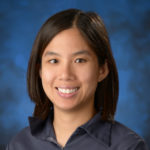Approach a large national meeting like it’s a Target run. You know the scenario – you go into Target to get just one thing and leave with 10 items you didn’t know you needed. Likewise, you can go to a scientific meeting thinking your priority is to get CME, or to network, or to share your research. But really it’s all of this and more. Below are my 2-cents on how to get the most out of professional meetings.
…Ready for it?
Do a bit of prep work before the conference starts. Download the mobile App since this will have the most up-to-date session details. Pick out the sessions that are most relevant to your career or research interests; 2-3 per day would be reasonable. Plenary and late-breaking clinical trials sessions are usually worth attending. Then schedule in the miscellaneous which are just as important: Early Career networking, class reunions, meetings with mentors, sponsored dinners, etc.
Shake it off.
The national AHA meeting can seem terribly overwhelming. There’s 6-8 talks going on at the same time, vendors and poster abstracts spread out over an area equivalent to a football field, council meetings and sponsored lunches/dinners in adjacent hotel venues. My first whoop-de-do was an American Society of Nephrology conference (back when it was still called Renal Week) and I recall feeling lost and worrying whether I was making the right choices about how I was spending my time. Such anxiety is pointless – just breathe, do a bit of preparation (see above) and steer away from fear-of-missing-out mentality.
Talk to people.
It’s easy to hang back and blend into the masses – there’s nothing wrong with that, but you will gain more if you are actively engaged. Introduce yourself to leaders in the field, whether to ask a question or to just let them know you’re a fan of their work. Share ideas with other early career colleagues. Chat with reps at the vendor booths (a good way to learn about new devices and drugs on the market, since pharma representation is tightly restricted at academic centers). Most folks are happy to talk and will appreciate your interest.
Taking breaks is okay.
You are not obligated to sit in talks for 8 hours straight. Have a coffee, tea, or smoothie break. Grab lunch to reconnect with friends or colleagues. Browse the vendor booths and play a spin-the-wheel game. Relax at the Early Career lounge; post a tweet or two. At a meeting in Atlanta I joined a tour of the Coca Cola museum then went back to sit in on an evening research abstracts session. The break cleared my mind and allowed me to re-focus.
Blank space.
For Early Career peeps with a young family: This is your professional development time. Probably best not to bring your dependents. It is much harder to focus on the new hypertension guidelines if you’re wondering whether your kids ate a good breakfast and whether they’re doing okay at the hotel pool. Just saying.
End game.
Keep an open mind and you’ll find a learning opportunity at every turn. While it’s normal to initially feel a little intimidated, after the first day you’ll be navigating scientific meetings like a pro. And definitely take advantage of the awesome Early Career events and resources at AHA meetings!
(How many Taylor Swift song titles did you spot?)

Wei Ling Lau, MD is Assistant Professor in Nephrology at the University of California-Irvine, where she studies vascular calcification and brain microbleeds in chronic kidney disease. She is currently funded by an AHA Innovative Research Grant, and has been a speaker for CardioRenal University and the American Society of Nephrology.